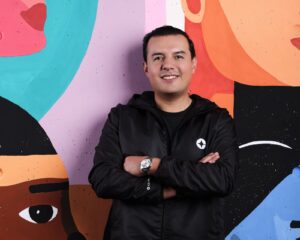
Por Eduardo Vega
September 21, 2023
In an interview with El Mercurio, Gianfranco Ferrari, CEO of Credicorp, shared that their vision is to transform Tenpo, a Chilean fintech owned by the Peruvian financial company Credicorp, into a fully digital bank by 2025, aiming to be a 100% digital retail bank by that time.
Ferrari acknowledged that despite Tenpo recording losses, they are considering this transition to a neobank and plan to apply for the corresponding license to make it effective by 2025.
This announcement was made during the interview granted by the executive to El Mercurio, where the reorganization the company has undergone in recent months was also detailed.
“We are evaluating applying for the banking license. Being conservative, let’s say by 2025. Imagine if the credit card doesn’t perform well, we would have to correct. As long as our card does well, that would be our bet,” Gianfranco Ferrari explained to El Mercurio.
And if it’s about a bank, Ferrari said the ambition is to have a 100% digital retail bank in two more years.
Credicorp, currently operating in several countries including Peru, Chile, Bolivia, Colombia, the United States, and Panama, aims to explore interesting business opportunities in Chile and sees a digital bank as a transformative value proposition in the Chilean market.
“We believe that there are still interesting business opportunities in Chile. And in the case of the digital bank, it’s a very transformational value proposition for what exists in the Chilean market,” stated the CEO of Credicorp.
“We can divide Tenpo’s journey into three stages. One stage was basically prepaid, which is what we are fulfilling now. We have already obtained the first license for a credit card issuer for a 100% virtual service and we will start issuing before the end of the year,” the executive highlighted.
“Although it’s still losing money, we will continue to invest in Tenpo, because we are very pleased with the operational indicators. I would say that specifically today our major bet in Chile is Tenpo, along with a focus on wealth management and asset management,” concluded Gianfranco Ferrari.

Por Israel Pantaleón
January 20, 2026

Por Israel Pantaleón
December 17, 2025